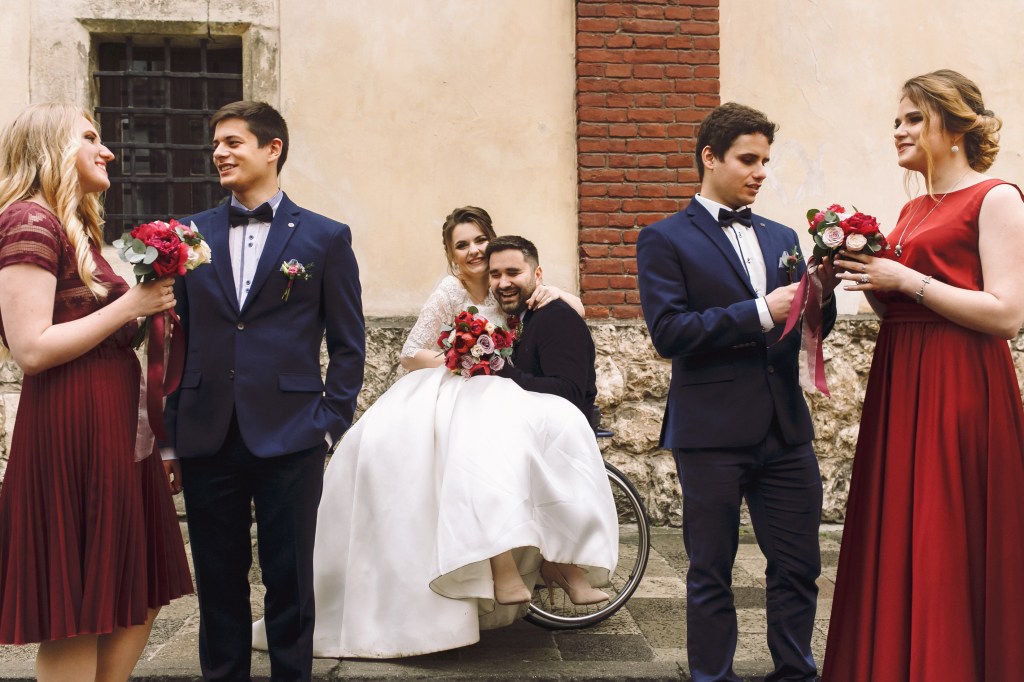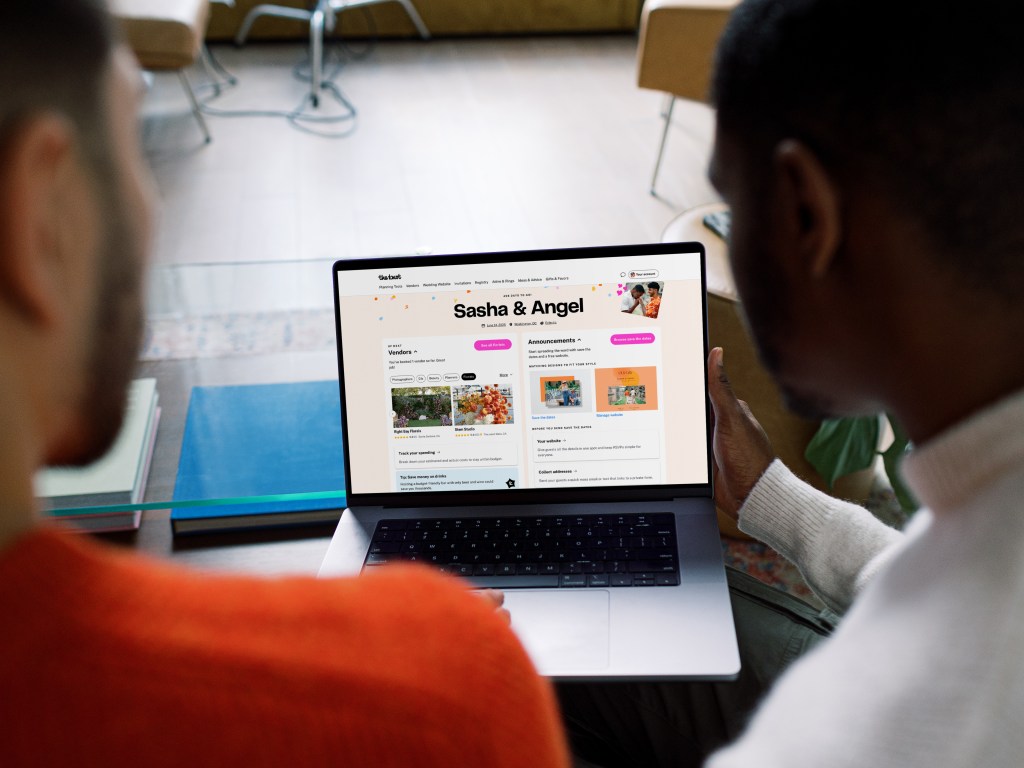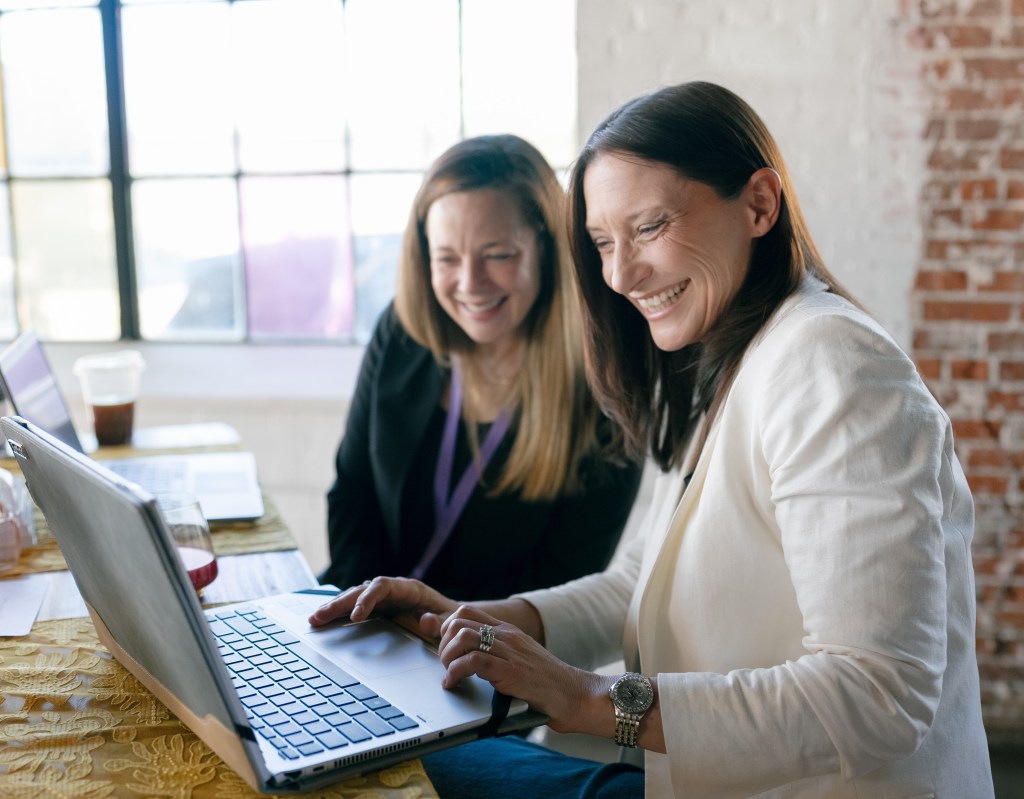How to Ace Accessibility in Your Wedding Services

Inclusivity is not just a legal requirement (like ADA compliance), but a way to ensure all guests feel welcome and valued. Did you know that more than 1 in 4 adults in the US report having a disability, according to the CDC? This includes conditions that affect cognition, mobility, hearing, vision and behavior.
Couples are seeking vendors who think beyond aesthetics and provide accessible accommodations for everyone involved in their special day.
How can wedding vendors ensure their services are accessible for as many couples and guests as possible—and how do they effectively market this during engagement season? Read on for some key tips.
What does it mean to include accessibility in weddings?
Accessibility essentially means designing weddings so that people with different abilities, needs and circumstances can participate fully. It goes beyond ramps and railings—it truly impacts every vendor and service category.
“Accessibility is about being thoughtful and understanding that it looks different for everyone,” said Jason Rhee, CEO of California-based Rheefined Company Creative Events + Production.
“For me, it’s an ongoing commitment to learning, asking questions and engaging our clients and vendor partners in open conversations about accommodations. It’s not about having all the answers; it’s about being willing to listen, adapt and create spaces where everyone feels considered and included.”
Jason Rhee, Rheefined Company Creative Events + Production
Rhee has observed or participated in events where inclusivity began at valet check-in, with staff trained to use inclusive language and to offer assistance without assumptions. “When that mindset is woven into every guest touchpoint, it sets the tone for an event that truly welcomes everyone,” he said..
Weddings are milestone events at which everyone deserves to feel included. Vendors’ mindsets must value inclusion as part of the guest experience, not just as a compliance measure. Accessibility is part of modern customer expectations, as more couples prioritize social awareness and diversity, equity, and inclusivity. Couples—especially younger ones, such as Gen Z—also increasingly want authenticity from the vendors they work with.
In this way, vendors who prioritize accessibility not only do the right thing but also gain a competitive edge. Couples might not know what to ask for when considering this area, and forward-thinking vendors can proactively guide them.
“In my experience, being inclusive about accessibility starts with intention,” said Kelsey Harrison, owner of Austin-based Oh Happy Day Booth. “The most important thing to realize is that we’re never going to make an event 100% accessible for 100% of people, 100% of the time. The biggest thing we can do to make sure that everyone feels included is to make an effort and to continue learning as we go and applying lessons we’ve learned to future events.”
Harrison knows from both professional and personal experience. She started her career as a portrait and wedding photographer—an extremely physically demanding job. She has a progressive neurological condition called Charcot-Marie-Tooth, which affects her lower legs and hands.
“I knew my career had a shelf life on it,” she said. “I wanted to focus on building a business that would let me delegate the physically demanding parts of the job while staying in the industry I loved and had built strong connections in. That’s why I started Oh Happy Day Booth. It allows me to run the business and manage the people, which is what I love to do, and outsource the event execution to booth attendants.”
Accessibility tips for each type of wedding vendor
As we mentioned, accessibility affects every vendor category, from planners to photographers. Here are some top tips for each type of pro:
Caterers
Ensuring that the cocktail hour and dinner accommodate both a wide variety of palettes and dietary needs and restrictions can be tricky. Caterers should sit down with couples early on to review menu options, ensuring they account for as many requirements as possible. Additionally, consider training catering staff to answer food safety and allergen questions with knowledge and confidence.
DJ and musicians
Vendors in the music and entertainment industry have a lot to consider in the realm of accessibility, from couples and guests with hearing impairments to those with sensory processing disorder, autism spectrum disorder or ADHD who can’t tolerate loud noise. Some accessible elements these pros can incorporate include vibrating or visual cues for music and dancing, considerate lighting choices that avoid flashing or strobe lights and volume control or noise-canceling options at receptions.
Florists
Florists must consider both visual and sensory aspects when providing accessible services. Avoid strong scents that may trigger sensitivities. Provide sample photos in grayscale for couples to see how their arrangements may appear to guests with color vision differences.
Hair and makeup
Beauty professionals must consider the sensory experience of the makeup and hairstyles on couples and bridal parties with different abilities. Some styles may feel too tight or uncomfortable, for instance, and some makeup might feel too heavy or itchy. Ensure you are aware of any allergies among couples or bridal party members so you can avoid products that might irritate them. Also consider offering mobility options, such as ramps and adjustable chairs, in your studio.
Officiants
One of the top tips for officiants to ensure all guests can enjoy the wedding ceremony is to train to work with interpreters who can sign their words. Slow-paced speech for clarity, as well as the use of microphones and amplification in larger venues, can also help guests with hearing and cognitive impairments.
Photographers, photo booths and videographers
Harrison says she intentionally guides both her clients and their planners toward accessible solutions for their event, specifically within the confines of what her business offers. For example, at events where she knows there will be a large number of wheelchair users, her team can lower the booth in advance, reducing the need to tilt the photo booth throughout the evening.
“We’re always searching for ways to ensure that people with mobility limitations can still access those things, or present alternative solutions that everyone can enjoy,” she said. “I don’t think you have to have a disability to provide couples and planners with context like this, but I do think it’s helped me get comfortable making these suggestions more quickly than the average vendor.”
Photographers must consider couples, bridal party members, and guests who might struggle to follow directions or are physically unable to reach a particular photo spot. Include stage group photos (not leaving wheelchair users at the edges), and ensure photobooths are wheelchair-accessible. Provide tactile or large-print instructions where applicable.
Planners
In many ways, planners are at the epicenter of delivering accessibility services because they touch numerous aspects of the wedding.
“Event planners are the vendors who have the biggest impact on accessibility and inclusion because they’re the ones calling the shots. As non-planning vendors, it’s our responsibility to find ways to make our services more accessible so that planners don’t have to carry that entire load.”
Kelsey Harrison, Oh Happy Day Booth
In addition to ensuring that they themselves work with vendors to be mindful of accessibility, here are a few areas of focus:
- Encourage couples to include an “accessibility needs” question on RSVP forms.
- Offer large-print or braille menus and programs.
- Offer comfortable, accessible seating—such as seating close to elevators and with ample space for individuals with mobility needs.
- Consider thoughtful guest favors that don’t exclude (e.g., food favors labeled clearly with ingredients and allergens).
Venues
Venues, too, have a lot to cover to ensure their locations are accessible to as many people as possible. This begins from the moment guests arrive, with accessible entrances, ramps, elevators, parking and shuttles.
“Accessibility should be considered from load-in to load-out, not just for guests, but also for every vendor working the event,” Rhee said. “Communication is key, and it’s okay for the answer to sometimes be, ‘I don’t know, ‘ or ‘We’ve never been asked that.’ What matters most is following up with, ‘Let me look into that.’”
Rhee recently had a great conversation with another event pro about rental companies and the height of their bars for wheelchair users. It was the first time he had truly thought about that detail. “It’s now something we’ve added to our own checklist, which is a perfect example of how accessibility is a continual learning process,” he said.
Other ways to provide accessibility include clear signage with easy-to-read fonts and high contrast, as well as obvious directions and digital maps with accessibility features. For the ceremony, you could enable captioning or live transcription for speeches. Consider offering digital-friendly PDFs and audio versions of the ceremony, along with a live stream, so guests who are unable to attend in person can still participate. During the reception, quiet rooms or chill-out zones are an excellent option for guests who need a moment to relax.
How to effectively market accessibility to couples
How you market accessibility to couples ties back to a previous point we made about authenticity. You never want to showcase accessibility in a performative way. Your offerings should reflect both your brand and values and cater to a wide range of abilities. Rhee recommends an approach of genuine respect and empathy.
“Everyone has different comfort levels when it comes to discussing or disclosing their needs, and part of accessibility is honoring that discretion,” he said. “It’s not about announcing your inclusivity, it’s about practicing it quietly, consistently and respectfully in your work.”
Demonstrate accessibility in action with photos and videos that showcase features such as ramps, interpreters, signage, programs and braille placecards. Use inclusive language on your website, social media, collateral and Storefronts, such as “We welcome all abilities” rather than stating that you are “ADA-compliant”—the latter might make it sound like you’re just ticking a box. Include accessibility as a value in your branding, not an afterthought.
Accessibility in weddings: Some final dos and don’ts
As you’ve heard from the pros interviewed, getting accessibility right doesn’t happen overnight: it’s an ongoing process of learning and adapting. So, here’s a mini checklist of dos and don’ts from Rhee and Harrison as you consider how to be more intentional about accessibility as a wedding vendor.
Dos
- Approach every request with empathy, respect and curiosity.
- Communicate clearly and follow through.
- Identify what you can control and how you can accommodate the majority of people.
- Educate fellow wedding pros and couples through open communication.
- Put accessibility considerations in a questionnaire, or ask these questions alongside other questions that you’re already asking a client or planner.
Dont’s
- Make assumptions about someone’s needs or comfort levels. Everyone’s experience is different, and accessibility is most potent when it’s handled with compassion and discretion.
- Expect accessibility to always be a top priority for every couple. They may not have any guests who require physical accommodations due to mobility limitations at the time of the invitation.
- Be afraid to ask what people need or to state what is required.
- Forget to note the accommodations that clients or planners request over time, so that you can identify trends.
Accessibility is a form of hospitality that helps every guest feel seen, respected and included.
Vendors who embrace accessibility aren’t just following rules—they’re building memorable, meaningful and welcoming celebrations for both current couples and those who might consider them in the future.
Let's grow your business together!
Start advertising on The Knot and WeddingWire, the top two wedding planning platforms.


